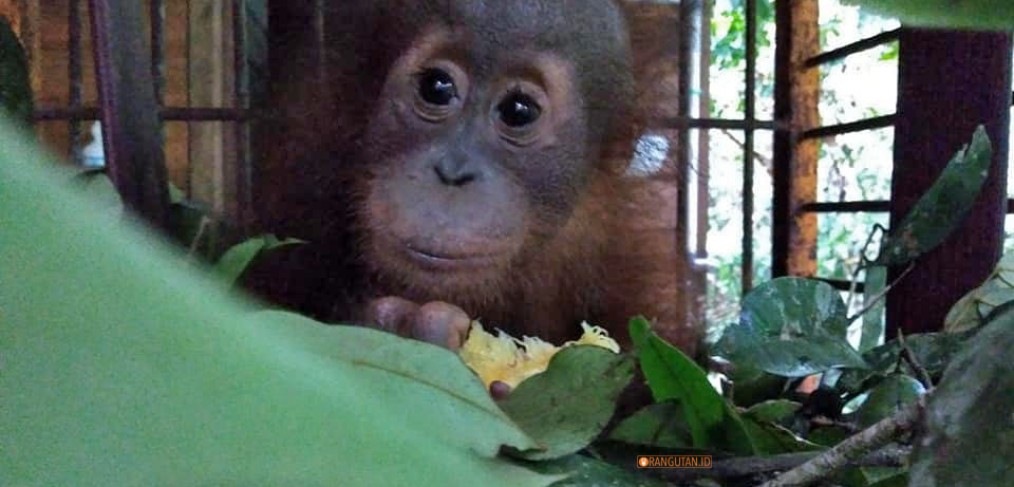H. E. Joko Widodo
President of the Republic of Indonesia Istana Merdeka
Jakarta Pusat 10110
Indonesia
Dear President Widodo,
Like you, we care deeply about conservation and creating economic growth opportunities that preserve and sustain the environment. Indonesia’s natural beauty is admired and appreciated around the world. Indonesia hosts one of the highest levels of biodiversity on earth. Already, Indonesia is demonstrating leadership in the international community and at home.
We commend your vision to lead Indonesia into a new era of climate action, pledging to reduce Indonesia’s emissions growth by up to 41 percent below business as usual by 2030, and to help the people and natural heritage of Indonesia by curbing deforestation and rehabilitating 12 million hectares of degraded land. This vision of environmentally responsible growth has the potential to boost Indonesia’s global market access by allowing the country to become a globally recognized source of responsibly sourced products, boosting the economy.
A key element of environmentally responsible growth is sustainable infrastructure. Done right, energy and infrastructure projects have the potential to drive economic growth and help people while channeling development in ways that do not adversely affect the environment.
In that context, we urge you to take a heroic action to protect the newly-discovered Tapanuli orangutan by canceling construction of the proposed Batang Toru dam project. The Batang Toru dam was authorized before the Tapanuli orangutan species (Pongo tapanuliensis) was identified in 2017 by scientists (including Anton Nurcahyo, Dyah Perwitasari-Farajallah, Puji Rianti, and Joko Pamungkas from Indonesia). As such, their habitat is globally important, and the conservation of the Tapanuli orangutan has become both an Indonesian and international conservation priority. There are just eight living great ape species, and we know that your actions to protect the Tapanuli orangutan would be long celebrated, a powerful piece of your legacy to Indonesia.
There are other key new pieces of information about the project that merit its reconsideration and cancellation:
• With only an estimated 800 Tapanuli orangutans in existence, this new species is designated as critically endangered. Modeling suggests that if more than one percent of the population is depleted each year – more than 8 individuals – the species will go extinct.
• The Batang Toru dam will mean extinction for the Tapanuli. This project was conceived and planned more than half a decade before the new species was identified, so it could not have taken into account its impact on the Tapanuli.
• The project has not taken into account the impact of the hydroelectric dam and supporting infrastructure on the Tapanuli Orangutan in its AMDAL (environmental impact assessment).
• Indigenous Peoples in North Sumatra say that the project will evict them from their ancestral lands.
We encourage you to review the dam’s siting and work with the relevant local government agencies to identify alternative options for increasing energy production, such as solar or geothermal. For example, the Sarulla geothermal electricity project that currently provides electricity to the area could be expanded without adversely impacting orangutans.
At the end of the day, it would be a tragedy to drive the extinction of the Tapanuli orangutan for a mere 510 megawatts of energy, less than one percent of Indonesia’s generation capacity – especially when overcapacity is a significant concern and the nearby Sarulla geothermal facility could be expanded, providing clean energy to support the region’s infrastructure and development. There is ample financing available that can help develop this and other clean energy sources as an alternative.
In light of the recent scientific and conservation developments, we beg you to secure a future for one of Indonesia’s natural wonders. Please cancel the dam. Take steps to protect the Tapanuli orangutan and the broader Batang Toru ecosystem for the long term by introducing legislation to recognize its special status and protect the area from all forms of industrial development.
Thank you for your consideration. We would welcome a dialogue on this issue and other opportunities to promote environmentally responsible growth in Indonesia.
Sincerely,
Former U.S. Congressman Henry Waxman (Mighty Earth, Chairman)
Former U.S. Secretary of Commerce and U.S. Ambassador to China Gary Locke
Former U.S. Congressman and Chairman of the House Foreign Affairs Committee Howard Berman Former U.S. Congressman George Miller
The Honorable Zac Goldsmith, MP United Kingdom
Former U.S. Ambassador to Indonesia Robert Blake, Jr. (Board Co-Chair, US-Indonesia Society) Former U.S. Ambassador to Indonesia Cameron Hume
Chelsea Clinton and Marc Mezvinsky
Alison Sudol, Actress, Singer/Songwriter and IUCN Goodwill Ambassador
Panut Hadisiswoyo – Orangutan Information Center
Hardi Baktiantoro, Center for Orangutan Protection
Franky Samperante, PUSAKA
Farwiza Farhan, Yayasan HAkA
Kusnadi Oldani, FOKUS [Forum Orangutan Sumatra]
Teguh Surya, Madani
Karlo Lumban Raja, Sawit Watch
Helen Buckland, Sumatran Orangutan Society
Dr. Ian Redmond, Chairman of Ape Alliance
“Marc Ancrenaz, Dr. med. vet. (PhD). HUTAN – Kinabatangan Orang-utan Conservation Programme Scientific Director”
Leif Cocks, President – The Orangutan Project
Michelle Desilets, Orangutan Land Trust
Irena Wettstein, PanEco Foundation
Dr Ian Singleton, Sumatran Orangutan Conservation Programme Erik Meijaard, Adjunct Professor, University of Queensland Upreshpal Singh, Friends of the Orangutans
Dr. William Laurance (scientist, conservationist, and founder of ALERT)
Russell A. Mittermeier, Ph.D., IUCN SSC Primate Specialist Group Chair and Global Wildlife Conservation Chief Conservation Officer
Dirck Byler, IUCN SSC Primate Specialist Group, Section on Great Apes, Chair
Rebecca Kormos, Ph.D., IUCN SSC Primate Specialist Group, Section on Great Apes, Deputy Vice-Chair Serge Wich, Ph.D., IUCN SSC Primate Specialist Group, Section on Great Apes, Vice-Chair
Karen B. Strier, President, International Primatological Society
Bill McKibben, Founder, 350.org
Anja Lillegraven, Rainforest Foundation Norway
James Askew, Research Fellow at Carnegie Institution for Science
Michael Brune, Sierra Club
Fatah Sadaoui and Rebecca Falcon, SumofUs
Iain Keith, Avaaz.org
Kepada Yang Terhormat:
Bapak Ir. Joko Widodo
Presiden Republik of Indonesia
Istana Merdeka
Jakarta Pusat 10110
Indonesia
Bapak Presiden yang Terhormat,
Seperti Anda, kami sangat peduli akan konservasi dan menciptakan peluang pertumbuhan ekonomi yang pada saat yang sama melestarikan dan menjaga kelestarian lingkungan. Keindahan alam Indonesia dikagumi dan dihargai di seluruh dunia. Indonesia memiliki salah satu tingkat keanekaragaman hayati tertinggi di dunia. Indonesia saat ini telah menunjukkan kepemimpinannya dalam komunitas internasional dan di dalam negri.
Kami menghargai visi Anda dalam memimpin Indonesia menuju era baru aksi iklim, janji Anda untuk mengurangi kenaikan emisi Indonesia hingga 41 persen di bawah kondisi yang sama pada tahun 2030, dan membantu masyarakat dan warisan alam Indonesia dengan mengurangi deforestasi dan merehabilitasi 12 juta hektar lahan kritis. Visi pertumbuhan yang bertanggung jawab terhadap lingkungan ini berpotensi meningkatkan akses pasar global Indonesia dan membuka kesempatan bagi Indonesia menjadi penghasil barang yang diproduksi secara bertanggung jawab dan diakui secara global, serta meningkatkan perekonomian.
Elemen kunci dari pertumbuhan yang bertanggung jawab terhadap lingkungan adalah infrastruktur yang berkelanjutan. Bila dilakukan dengan benar, proyek-proyek energi dan infrastruktur berpotensi mendorong pertumbuhan ekonomi dan membantu masyarakat serta menyalurkan pembangunan menuju cara yang tidak berdampak buruk terhadap lingkungan.
Dalam konteks itu, kami mendesak Anda untuk mengambil tindakan heroik untuk melindungi spesies orangutan Tapanuli yang baru ditemukan dengan membatalkan usulan pembangunan proyek bendungan Batang Toru. Pembangunan bendungan Batang Toru disetujui sebelum spesies orangutan Tapanuli (Pongo tapanuliensis) diidentifikasi pada tahun 2017 oleh para ilmuwan (termasuk Anton Nurcahyo, Dyah Perwitasari-Farajallah, Puji Rianti, dan Joko Pamungkas dari Indonesia). Dengan demikian, habitat mereka penting secara global, dan konservasi orangutan Tapanuli telah menjadi prioritas konservasi Indonesia dan internasional. Di dunia, hanya hidup delapan spesies kera besar, dan kami tahu bahwa tindakan Anda melindungi orangutan Tapanuli dirayakan untuk waktu yang lama, dan merupakan warisan Anda yang kuat untuk Indonesia.
Ada beberapa informasi kunci baru lain yang dapat dipertimbangkan untuk pembatalan atau pengkajian ulang proyek ini:
• Karena diperkirakan adanya hanya 800 orangutan Tapanuli, spesies baru ini ditetapkan sebagai sangat terancam punah. Pemodelan menunjukkan bahwa jika lebih dari satu persen populasi ini, atau lebih dari 8 individu, hilang setiap tahun maka spesies ini akan punah.
• Bendungan Batang Toru akan mengakibatkan kepunahan untuk spesies Tapanuli. Proyek ini disusun dan direncanakan lebih dari setengah dekade sebelum spesies baru diidentifikasi, sehingga tidak dapat memperhitungkan dampaknya pada spesies Tapanuli.
• Proyek ini tidak memperhitungkan dampak bendungan listrik tenaga air dan infrastruktur pendukungnya terhadap Orangutan Tapanuli dalam AMDAL (analisis mengenai dampak lingkungan).
• Masyarakat adat Sumatera Utara mengatakan bahwa proyek ini akan mengusir mereka dari tanah leluhurnya.
Kami mendorong Anda untuk meninjau lokasi bendungan dan bekerja dengan lembaga pemerintah daerah terkait untuk mengidentifikasi opsi alternatif untuk meningkatkan produksi energi, misalnya dengan tenaga surya atau panas bumi. Misalnya, proyek listrik panas bumi Sarulla yang saat ini menyediakan listrik ke daerah itu dapat diperluas tanpa berdampak buruk pada orangutan.
Pada akhirnya, akan menjadi tragedi bila kepunahan orangutan Tapanuli terjadi hanya karena pembangkit listrik 510 megawatt, atau kurang dari satu persen kapasitas pembangkitan Indonesia. Terlebih lagi bila kelebihan kapasitas merupakan masalah yang signifikan dan fasilitas panas bumi Sarulla terdekat dapat diperluas dan menyediakan energi bersih untuk mendukung infrastruktur dan pembangunan kawasan. Ada banyak pembiayaan yang tersedia yang dapat membantu mengembangkannya dan sumber energi bersih lainnya sebagai alternatif.
Mengingat perkembangan ilmiah dan konservasi belakangan ini, kami mohon Anda menjaga masa depan salah satu keajaiban alam Indonesia. Tolong batalkan pembangunan bendungan ini. Ambil langkah-langkah untuk melindungi orangutan Tapanuli dan lebih luas lagi ekosistem Batang Toru untuk jangka panjang dengan mengeluarkan undang-undang untuk mengakui status khusus dan melindungi daerah tersebut dari semua bentuk pengembangan industri.
Terima kasih atas pertimbangan Anda. Kami akan mengundang dialog mengenai masalah ini dan peluang lain untuk mempromosikan pertumbuhan yang bertanggung jawab untuk lingkungan di Indonesia.
Hormat kami,
Former U.S. Congressman Henry Waxman (Mighty Earth, Chairman)
Former U.S. Secretary of Commerce and U.S. Ambassador to China Gary Locke
Former U.S. Congressman and Chairman of the House Foreign Affairs Committee Howard Berman Former U.S. Congressman George Miller
The Honorable Zac Goldsmith, MP United Kingdom
Former U.S. Ambassador to Indonesia Robert Blake, Jr. (Board Co-Chair, US-Indonesia Society)
Former U.S. Ambassador to Indonesia Cameron Hume
Chelsea Clinton and Marc Mezvinsky
Alison Sudol, Actress, Singer/Songwriter and IUCN Goodwill Ambassador
Panut Hadisiswoyo, Orangutan Information Center
Hardi Baktiantoro, Centre for Orangutan Protection
Franky Samperante, PUSAKA
Farwiza Farhan, Yayasan HAkA
Kusnadi Oldani, FOKUS [Forum Orangutan Sumatra]
Teguh Surya, Madani
Karlo Lumban Raja, Sawit Watch
Helen Buckland, Sumatran Orangutan Society
Dr. Ian Redmond, Chairman of Ape Alliance
“Marc Ancrenaz, Dr. med. vet. (PhD).HUTAN -Kinabatangan Orang-utan Conservation ProgrammeScientific Director”
Leif Cocks, President -The Orangutan Project
Michelle Desilets, Orangutan Land Trust
Irena Wettstein, PanEco Foundation
Dr Ian Singleton, Sumatran Orangutan Conservation Programme
Erik Meijaard, Adjunct Professor, University of Queensland
Upreshpal Singh, Friends of the Orangutans
Dr. William Laurance (scientist, conservationist, and founder of ALERT)
Russell A. Mittermeier, Ph.D., IUCN SSC Primate Specialist Group Chair and Global Wildlife Conservation Chief Conservation Officer
Dirck Byler, IUCN SSC Primate Specialist Group, Section on Great Apes, Chair
Rebecca Kormos, Ph.D., IUCN SSC Primate Specialist Group, Section on Great Apes, Deputy Vice-Chair
Serge Wich, Ph.D., IUCN SSC Primate Specialist Group, Section on Great Apes, Vice-Chair
Karen B. Strier, President, International Primatological Society
Bill McKibben, Founder, 350.org
Anja Lillegraven, Rainforest Foundation Norway
James Askew, Research Fellow at Carnegie Institution for Science
Michael Brune, Sierra Club
Fatah Sadaoui and Rebecca Falcon, SumofUs
Iain Keith, Avaaz.org


